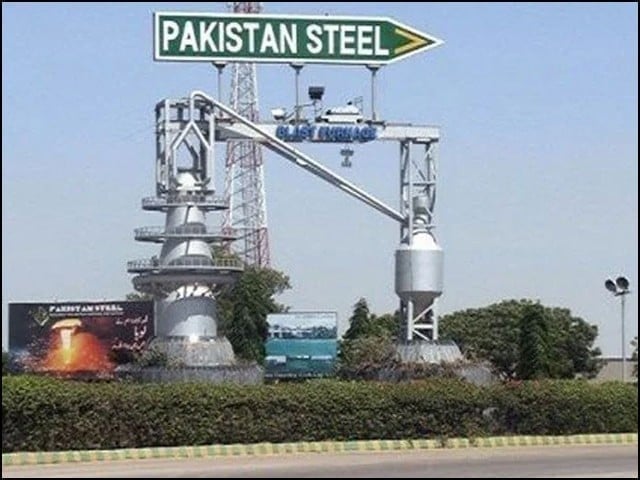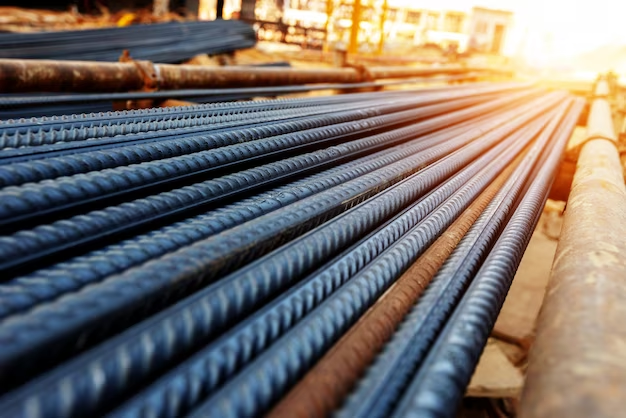The government has announced the permanent closure of Pakistan Steel Mills (PSM), a state-owned enterprise that has been experiencing substantial financial losses since 2009. This decision was revealed by Dr. Muhammad Fakhr-e-Alam Irfan, the federal secretary of the Ministry of Industries and Production, during a Senate Standing Committee on Industries and Production meeting held on Wednesday. The meeting was chaired by Senator Aoun Abbas.
Dr. Irfan informed the committee that the Sindh government has been offered the opportunity to take control of 700 acres of the total 18,000 acres of PSM land to establish its own steel plant on the site. He further explained that the caretaker government had made several amendments regarding the privatization of PSM.
Despite these efforts, there has been no buyer for PSM in the market. Consequently, the government is considering scrapping the mill and repurposing the land for other uses. The federal cabinet has already approved this plan. However, there is some ambiguity regarding the ownership of the PSM land, as there are no records indicating whether it belongs to the federal government or the Sindh government.
Dr. Irfan clarified that the PSM land was originally acquired as state land. To use the land for purposes other than steel production, the provincial government’s permission is required. The government plans to utilize the PSM land to establish Export Promotion Zones or Industrial Zones.
The caretaker provincial government had initially allowed the caretaker federal government to use the land. However, the current provincial government is reviewing this decision. Dr. Irfan mentioned that the Sindh government intends to establish a new steel mill on 700 acres of the land, while the remaining land will remain under PSM’s ownership. The Ministry of Industries and Production is awaiting the Sindh Cabinet’s final decision on this matter.
During the meeting, a representative of the PSM union requested the committee to clarify whether PSM employees are entitled to 12 percent of the mill’s profits and whether PSM can be restored. The union representative also challenged the accuracy of the figures provided by PSM officials and argued that the land should not be used for an export promotion zone.
Senator Saifullah Khan Niazi expressed serious concern over the absence of a regular chief executive officer (CEO) for PSM. He emphasized the need for the government to appoint a permanent CEO as soon as possible. The chairman of the committee also inquired about the status of the board of governors of PSM and requested full details of the board members for the next meeting.
Senator Dost Ali Jeesar warned that shutting off the gas supply to the steel mills would create operational problems. Despite these concerns, the Ministry of Industries and Production has directed PSM authorities to discontinue the supply of gas to the steel plant, effectively hindering any potential revival efforts.
PSM Chief Financial Officer (CFO) Arif Sheikh informed the committee that the federal government decided to close down PSM due to its poor performance and ongoing financial losses. Established in 1974, PSM has been facing severe financial difficulties for over a decade. The CFO revealed that the annual salary expenditure for PSM employees is Rs3.1 billion, and the government has paid Rs32 billion in salaries over the past ten years. Additionally, PSM has consumed Rs7 billion worth of gas during this period. Sheikh attributed the mill’s decline to politically-influenced recruitment and the regularization of daily wager employees, which added significant costs.
In 2010, the government decided to regularize the services of 4,500 daily wager employees, resulting in an additional cost of Rs12 billion. Despite the financial constraints highlighted by PSM management, the then Pakistan Peoples Party (PPP) government assured sufficient funds would be provided.
Sheikh noted that until 2008, PSM operated at 80 percent capacity. However, the global recession that year severely impacted the steel industry, including PSM. At its peak in 2008, PSM employed 27,000 workers, a number that has since been reduced to 20,000, still significantly above the required workforce of 7,000.
A notification from the Ministry of Industries and Production instructed the PSM CEO to halt the gas supply to the plant, including critical components like blast furnaces, which had been restricted since June 2015. As of June 30, 2023, PSM had estimated losses of Rs22.4 billion, and gas obligations had reached Rs33.5 billion.
The committee was informed that the total value of PSM assets was Rs861 billion as of a 2021 audit, including Rs2.12 billion in movable assets and Rs858 billion in immovable assets. The total cost of the land stands at Rs622 billion. PSM’s total liabilities amount to Rs335 billion, with Rs138 billion in loans acquired over the past ten years, and Rs103 billion paid in interest.




